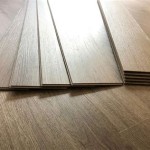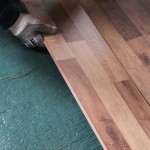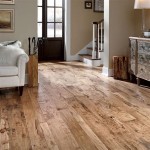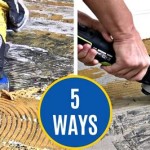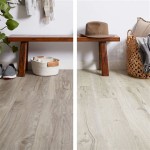Exploring the Benefits and Drawbacks of Slate Flooring
Slate flooring has gained immense popularity in recent years due to its timeless appeal and durability. However, like any flooring option, it comes with its own set of pros and cons. To make an informed decision, it's crucial to understand both the benefits and drawbacks of slate flooring before committing to it.
Benefits of Slate Flooring:
Durability and Longevity: Slate is an exceptionally hard and durable stone that can withstand heavy foot traffic and wear and tear. It's resistant to scratches, dents, and cracking, making it an ideal choice for high-traffic areas such as kitchens, hallways, and living rooms.
Natural Beauty: Slate's natural beauty is undeniable. The inherent variations in its color and texture create a unique and organic aesthetic that complements a wide range of décor styles. Its gray, green, and purple hues add character and warmth to any space.
Water Resistance: Slate is naturally water-resistant, making it suitable for areas that experience moisture, such as bathrooms, kitchens, and mudrooms. It does not absorb water easily, reducing the risk of damage or staining.
Heat Resistance: Slate is also heat-resistant, making it a great choice for areas around fireplaces or underfloor heating systems. It can withstand high temperatures without cracking or warping.
Low Maintenance: Slate is relatively easy to maintain. Regular sweeping or vacuuming and occasional mopping with a pH-neutral cleaner are typically sufficient to keep it looking its best. However, sealing is recommended to enhance its water resistance and protect against stains.
Drawbacks of Slate Flooring:
Cold and Hard: Slate flooring can be cold underfoot, especially during the winter months. Its hardness also makes it uncomfortable to stand or walk on for extended periods without proper cushioning.
Cost: Slate flooring tends to be more expensive than other flooring options, such as laminate or vinyl. The cost of materials, installation, and maintenance can add up significantly.
Slippery When Wet: Slate flooring can become slippery when wet, increasing the risk of falls and accidents. It's essential to use non-slip mats or choose a slate with a textured surface to mitigate this issue.
Potential for Efflorescence: Efflorescence occurs when salts within the slate react with moisture and form a white, powdery substance on the surface. This can be an aesthetic concern, but it does not affect the structural integrity of the flooring.
Can Scratch or Chip: While slate is generally durable, it can still scratch or chip if subjected to sharp objects or heavy impact. It's important to take precautions to protect the flooring from damage.
In conclusion, slate flooring offers several benefits, such as durability, natural beauty, water and heat resistance, and low maintenance. However, it's important to consider its drawbacks, including its cold and hard nature, potential for slipperiness, and cost. By carefully weighing the pros and cons, homeowners can make an informed decision and determine if slate flooring is the right choice for their needs.

Tile Flooring Pros And Cons To Consider Forbes Home

Advantages And Disadvantages Of Kota Stone Flooring Tiles
5 Benefits Of Stone Flooring

Tile Vs Wood Flooring Major Differences Pros Cons And Costs Forbes Home

Disadvantages Of Vinyl Flooring Lx Hausys

The Advantages And Disadvantages Of Porcelain Tile Floors

Spc Flooring The Advantages And Disadvantages Of

Exploring Natural Stone Flooring Types Benefits And S

Lanier Grey Stone Plank Wallpaper 4015426021 By Advantage

Slate Floor Tiles For Bathroom Outdoors The Tile
See Also

